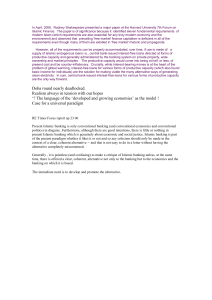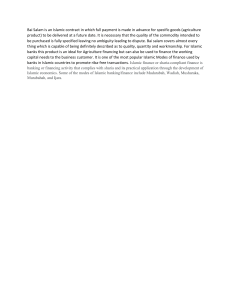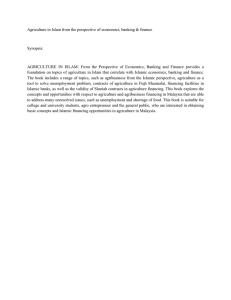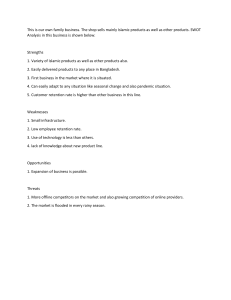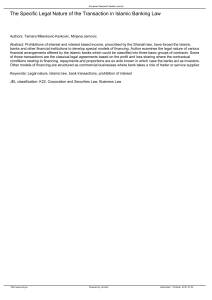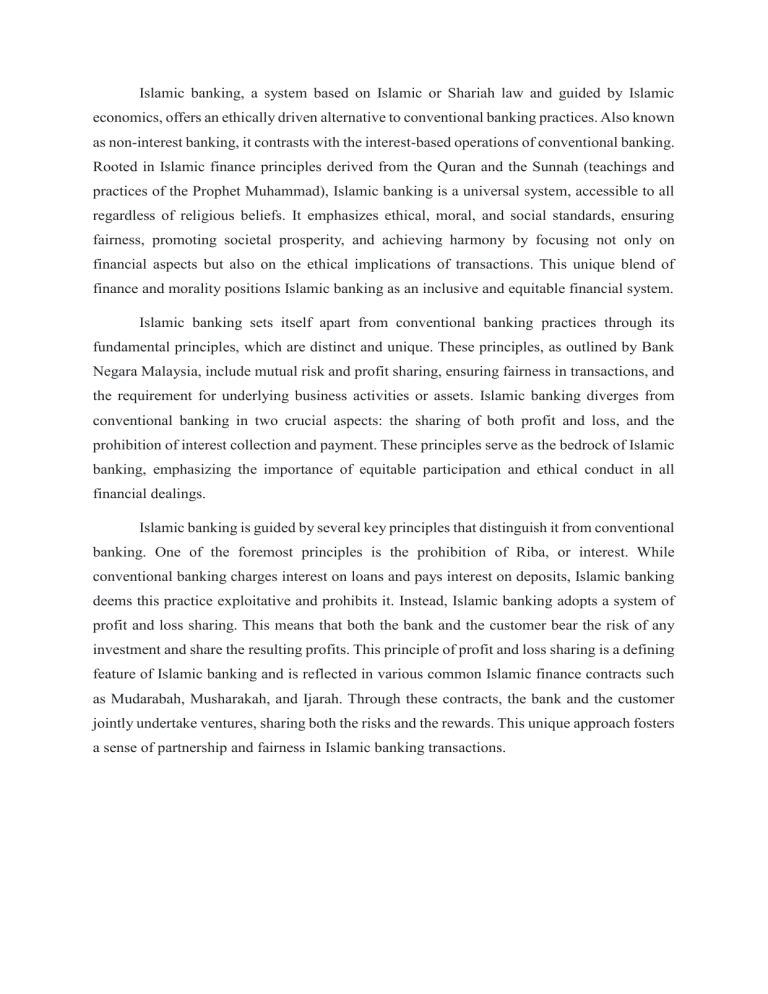
Islamic banking, a system based on Islamic or Shariah law and guided by Islamic economics, offers an ethically driven alternative to conventional banking practices. Also known as non-interest banking, it contrasts with the interest-based operations of conventional banking. Rooted in Islamic finance principles derived from the Quran and the Sunnah (teachings and practices of the Prophet Muhammad), Islamic banking is a universal system, accessible to all regardless of religious beliefs. It emphasizes ethical, moral, and social standards, ensuring fairness, promoting societal prosperity, and achieving harmony by focusing not only on financial aspects but also on the ethical implications of transactions. This unique blend of finance and morality positions Islamic banking as an inclusive and equitable financial system. Islamic banking sets itself apart from conventional banking practices through its fundamental principles, which are distinct and unique. These principles, as outlined by Bank Negara Malaysia, include mutual risk and profit sharing, ensuring fairness in transactions, and the requirement for underlying business activities or assets. Islamic banking diverges from conventional banking in two crucial aspects: the sharing of both profit and loss, and the prohibition of interest collection and payment. These principles serve as the bedrock of Islamic banking, emphasizing the importance of equitable participation and ethical conduct in all financial dealings. Islamic banking is guided by several key principles that distinguish it from conventional banking. One of the foremost principles is the prohibition of Riba, or interest. While conventional banking charges interest on loans and pays interest on deposits, Islamic banking deems this practice exploitative and prohibits it. Instead, Islamic banking adopts a system of profit and loss sharing. This means that both the bank and the customer bear the risk of any investment and share the resulting profits. This principle of profit and loss sharing is a defining feature of Islamic banking and is reflected in various common Islamic finance contracts such as Mudarabah, Musharakah, and Ijarah. Through these contracts, the bank and the customer jointly undertake ventures, sharing both the risks and the rewards. This unique approach fosters a sense of partnership and fairness in Islamic banking transactions. The next principle of Islamic banking distinguishes itself from conventional banking through its adherence to the principle of avoiding Gharar, or uncertainty. Islamic banking discourages transactions that involve speculative or ambiguous elements, in contrast to conventional banking practices that often involve high-risk investments and speculative trading. By prioritizing transparency and clarity, Islamic banking aims to create a more stable and ethical financial system. This principle is reflected in various aspects of Islamic banking operations, including the use of contracts such as Mudarabah, Musharakah, and Ijarah, which ensure the sharing of risks and rewards between the bank and the customer. By promoting transparency, fairness, and stability, Islamic banking provides individuals with access to financial services that align with Islamic values and principles. Islamic banking encompasses the principle of avoiding financing businesses and activities deemed Haram, or prohibited, under Islamic law. This principle serves as a guiding pillar, ensuring that Islamic banks abstain from engaging in transactions related to industries involving alcohol, pork, gambling, adult entertainment, and more. By adhering to these ethical guidelines, Islamic banking upholds the values and principles of Islamic law. In contrast, conventional banks do not impose such restrictions and are free to finance businesses across various sectors without considering the moral implications. Additionally, Islamic banking places a strong emphasis on asset-backed financing and transactions, a distinguishing feature from conventional banking practices. This means that every financial transaction within the Islamic banking system must be linked to a tangible asset, ensuring transparency, accountability, and stability. This approach fosters a more responsible and sustainable financial ecosystem, as it discourages speculative practices and encourages investments in real economic activities. By integrating ethical considerations into its operations, Islamic banking aims to create a financial system that promotes societal well-being and aligns with the values of its customers. Overall key differences between Islamic banking and conventional banking consist of interest-based transactions, risk sharing, and ethical standards. Interest-Based Transactions one of the fundamental differences between Islamic banking and conventional banking lies in their approach to transactions. Conventional banks rely heavily on interest-based transactions, where interest is charged on loans and paid on deposits. Islamic banking, on the other hand, strictly prohibits the charging or payment of interest, considering it exploitative and unjust. Instead, Islamic banks engage in profit and loss sharing, leasing arrangements, and other trade-based transactions that adhere to Islamic principles. Next, in risk sharing, conventional banks typically transfer the risk entirely to the borrower, who bears the consequences of any potential losses. In contrast, Islamic banks promote risk sharing between the bank and the customer. Through profit and loss sharing contracts such as Mudarabah and Musharakah, Islamic banks distribute the risks and rewards of investments between the parties involved. This principle fosters a sense of partnership and fairness, aligning the interests of the bank and the customer. Lastly, ethical standards in Islamic banking operate within a strict ethical framework based on Sharia law. The principles and guidelines derived from Islamic teachings guide the operations of Islamic banks, ensuring compliance with moral and ethical standards. These principles prohibit financing activities considered Haram, such as those involving alcohol, pork, gambling, and adult entertainment. In contrast, conventional banks do not have specific religious obligations but are required to comply with the legal and ethical standards of the countries in which they operate.

